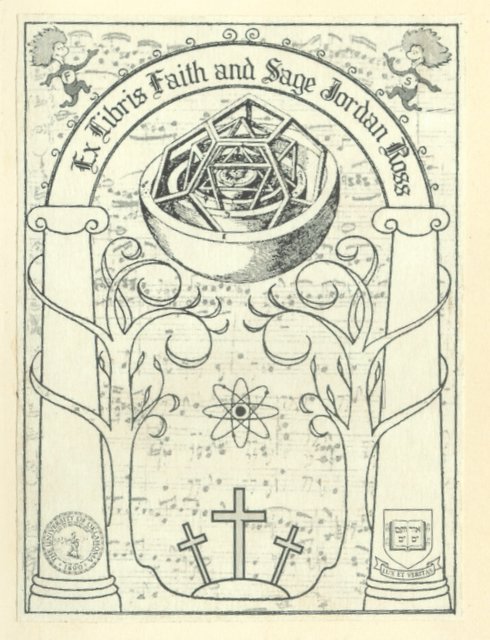Yale University’s annual Terry Lectures took place September 14 and 15. The topic was nominally “the science and religion debate”; actually it focused on American creationism and intelligent design. There were talks by sociologist Robert Wuthnow, physicist Lawrence M. Krauss, philosopher of religion Alvin Plantinga, biologist Kenneth R. Miller, and historian Ronald Numbers, followed by a panel discussion moderated by journalist Margaret Warner.
Robert Wuthnow – sociologist of religion – worldview: [unknown]
I missed his talk, but I gather that Wuthnow argued that many or most Americans do not engage with conflicting religious and scientific beliefs that they hold. Thus, there is actually much less conflict between science and religion than we should expect, given the diversity and prevalence of logically inconsistent views (held in some cases by the same person simultaneously).
Lawrence M. Krauss – cosmologist, popular author, and anti-ID activist – worldview: atheist
Krauss gave a talk that was apparently written for his normal anti-ID public lectures; there was nothing particularly new or interesting for followers of the ID debates and political goings-on, but he was an entertaining speaker. From the historian’s perspective, there were numerous nits to pick, the main one being his frequent invocation the Scientific Method and how it inherently precludes what ID is trying to do. To the historian of science, speaking of a single Scientific Method, and especially using such a defintion to make transhistorical proclamations about what science inherently is, is generally one of the first warning signals of scientism. He did make the boilerplate method-based anti-ID arguments, but he also added a warning of the dangers of the intellectual imperialism of science vis-a-vis other disciplines. Overall, though, it was more of a mobilize the base talk than an analyze the debate talk.
Alvin Plantinga – philosopher of religion – worldview: Calvinist, supporter of the philosophical idea of intelligent design, though not the ID movement and its claims of the scientificity of ID
Plantinga argued that evolutionary biology does not necessarily conflict with theism. In doing so, he divided modern evolutionary theory (rather perceptively, I think) into six distinct claims/theories: the Ancient Earth thesis, the Progress thesis, the Descent With Modification thesis, the Common Ancestry thesis, the Darwinism thesis (i.e., mutation and natural selection), and the Naturalistic Origins thesis. One might add a few more items in terms of alternate mechanisms and such (and quibble with the label “Progress” for the trajectory of evolutionary history) , but that covers main elements pretty well; Plantinga noted that with the exception of Darwinism requiring Descent With Modification, these are all logically independent.
He went on to claim that the theistic doctrine of creation is compatible with all of these theses–the caveat being that claiming positively that evolution is an unguided process, in which God plays no part (even an undetectable one), is a “metaphysical add-on”, an assertion of ontological naturalism rather than simply methodological naturalism. I think the audience expected that he would defend intelligent design (as a viable scientific hypothesis), and interpreted some aspects of his talk uncharitably, but this was mostly cleared up during Q&A.
Kenneth R. Miller – biologist, textbook author, author of Finding Darwin’s God ( a response to Darwin’s Black Box) – worldview: Catholic, anti-ID
Miller, as rumored, is a superb speaker and (in the words of one of my colleagues) “a virulent Catholic.” His talk was basically a selective look at recent goings on with the Intelligent Design Movement, mainly focused on various ways in which he as been there to combat it. The Dover trial, public lectures in other problem regions, his appearance on The Colbert Report, the use and misuse of his textbook, etc. Like Krauss, Miller partly aimed to relay the details of the ID happenings, and partly to dispel any doubts about its intellectual vacuity. Miller also had a significant section at the end devoted to explicating the compatibility of (Catholic) theism and modern scientific theories.
Overall I liked what Miller had to say and how he said it (he did far less trampling over the history and philosophy of science than Krauss), but I felt his treatment of the defense witnesses at the trial and the Discovery Institute’s role to be somewhat disingenuous, or at least misleading. He pointed out the statements of all three expert witnesses (Michael Behe, Scott Minnich, and Steve Fuller) to the effect that the meaning/definition of science should be revised, getting rid of methodological naturalism as a strict requirement. But rather than attempt any philosophical attack on that position, he quoted Behe to the effect that, in his proposed definition, astrology would fall within the realm of science. The problem is that for hundreds of years, astrology was a science; it was not abandoned by natural philosophers because of concerns about the definition of science, but rather, because philosophers became convinced that its (testable) predictions were worthless. To greatly oversimplify, it was falsified; it would remain wrong (I think the ID witnesses would agree) even if it were re-admitted into the scope of “science.” Of course, whether or not ID could be tested (or has already been falsified) even after setting aside methodological naturalism is a separate question. But using the astrology example (from the mouth of Behe) was an underhanded way to avoid either of those questions.
Like most ID critics, Miller fails to take the cognitive aspects of intelligent design seriously (as opposed to the theological and poltical aspects). Typically, critics first identify ID with wholesale anti-evolutionism, then proceed to summarize several of the many lines of evidence that clearly suggest the reality of evolution (i.e., descent with modification and common ancestry). Yet what gives ID most of its intellectual traction is (in some forms) its compatibility with a great portion of evolutionary biology. Miller quoted Behe’s denunciation of “Darwinism” from the intro Darwin’s Black Box, but ignored his claims to accept common descent. Plantinga pointed out that a sympathetic reading would suggest that Behe meant what Plantinga called “unguided Darwinism,” but Miller preferred to read an internal contradiction in which Behe accepted common descent yet totally rejected evolution.
I think it takes at least an advanced undergraduate level biological training to understand why the extant intelligent design arguments break down (without simply accepting an argument from authority, which is actually probably a reasonable thing to do); the reigning assumption is that it should be obviously to anyone who’s taken a year of high school biology (assuming evolution was on the curriculum). Thus the self-appointed defenders of science consistently underestimate the level of genuine intellectual interest and open-mindedness on the part ID proponents, and correspondingly overestimate their ideological motivations. Maybe my own first-hand experience with the ID movement (at the University of Oklahoma) was an anomaly, but I think the ID movement wouldn’t exist without a fair number of people who are interested in the intellectual aspects of ID more than the political-theological aspects. I’m also convinced that there is a lot more diversity of opinion within the ID movement than what is represented, for example, in the Wikipedia article, which fully equates ID with the Discovery Institute.
With respect to Miller in particular, this is picking nits. Mostly, he presented things in ways that, though clearly polemical, were factually defensible and not very distorted. I was actually surprised at how large a role religion plays in Miller’s scientific worldview; I don’t know how much I agree with his philosophy/theology of science (which actually matched up almost totally with Plantinga), but I enjoyed presentation (especially the way it got Krauss riled up).
Ronald Numbers – historian of science and religion, former president of the History of Science Society – worldview: non-religious (apostate 7th Day Adventist; husband of an evolutionary biologist)
Numbers talk was fine as far as it went, but it was basically just a history of science and religion in the Anglophone world over the last 200 years; intelligent design played only a minor role, and there wasn’t really anthing original or surprising (from the perspective of a historian of science) in the talk. He’s a great historian, so I was disappointed that he didn’t actually have anything novel to present about ID. I did get the chance to have dinner with Ron (along with another grad student and a couple faculty) the night before, which was very enjoyable.
I was hoping the Terry Lectures, in the printed version that will be published by Yale, would finally provide a scholarly, insightful, and fairly neutral resource for improving ID-related Wikipedia articles, but sadly that won’t be the case. However, the panel discussion should make interesting material for a historian of science and religion 50 years down the road.
 I had never heard of “ex libris” before, but that’s what really made the book-buying experience for me, and inspired me to make my own. Since then, the miracles of eBay and alibris.com have brought me plenty of material to stock my shelves, and a few more bookplates.
I had never heard of “ex libris” before, but that’s what really made the book-buying experience for me, and inspired me to make my own. Since then, the miracles of eBay and alibris.com have brought me plenty of material to stock my shelves, and a few more bookplates.
 Another interesting bookplate came in each of two volumes of
Another interesting bookplate came in each of two volumes of  Cha[rle]s E[lihu] Slocum wrote a book in 1909 on the dangers of tobacco, and he has an elementary school and I think a few other things named after him.
Cha[rle]s E[lihu] Slocum wrote a book in 1909 on the dangers of tobacco, and he has an elementary school and I think a few other things named after him.